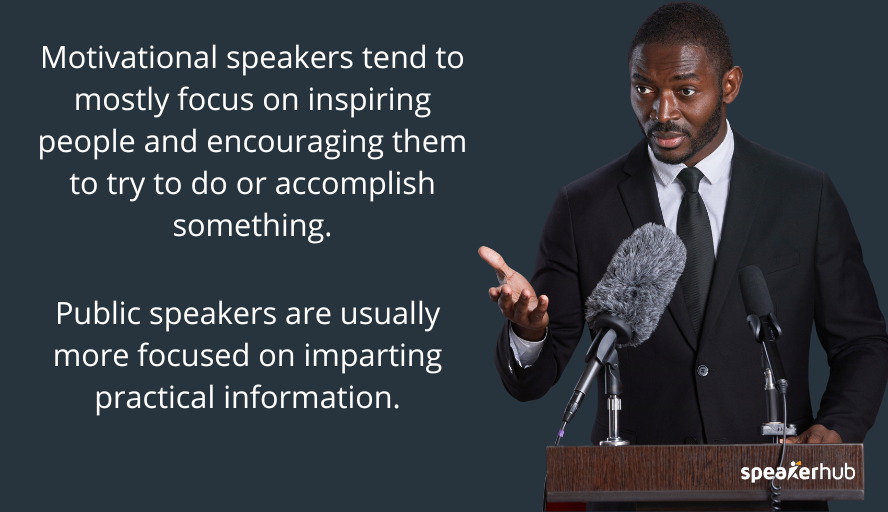What Does It Take To Be A Motivational Speaker

Imagine standing on a brightly lit stage, a sea of faces gazing back at you, each person carrying their own hopes, dreams, and struggles. The air crackles with anticipation. Your voice, amplified and clear, fills the room, carrying words that have the power to ignite change, to inspire action, and to offer solace. But what does it really take to command that stage, to connect with those hearts, and to truly be a motivational speaker?
The path to becoming a motivational speaker isn't paved with charisma alone. It demands a unique blend of authenticity, resilience, compelling storytelling, and a genuine desire to uplift others. This article delves into the essential ingredients that make a motivational speaker truly effective, exploring the skills, experiences, and personal qualities necessary to inspire audiences and leave a lasting impact.
The Foundation: Authenticity and Experience
At the core of any successful motivational speaker lies authenticity. Audiences can detect insincerity from miles away. Therefore, speakers must be genuine and relatable, sharing their own vulnerabilities and triumphs with honesty.
Many seasoned speakers draw upon personal experiences of overcoming adversity. Les Brown, for example, transformed a childhood marked by abandonment and a label of "educable mentally retarded" into a powerful narrative of perseverance and self-belief. His story resonates because it is raw, real, and ultimately, hopeful.
"Too many people are going through life and are not fulfilling their potential because they are afraid to fail, or they are afraid to ask," - Les Brown.
Crafting Your Message
A compelling message is crucial. It's not just about having something to say, but about saying it in a way that resonates deeply with the audience.
Effective speakers understand their target audience and tailor their message accordingly. They research their audience's demographics, interests, and challenges to ensure their message hits home.
Storytelling is a powerful tool. According to Stanford professor Jennifer Aaker, stories are remembered up to 22 times more than facts alone. Speakers weave personal anecdotes, historical events, and relatable scenarios into their speeches to create an emotional connection with the audience.
The Skills: Communication and Connection
Exceptional communication skills are non-negotiable. A motivational speaker must be able to articulate their message clearly, concisely, and engagingly.
This involves mastering the art of public speaking, including vocal projection, body language, and the ability to command attention. Many speakers hone their skills through workshops, coaching, and even improv classes.
Beyond communication, the ability to connect with the audience on an emotional level is paramount. This requires empathy, active listening, and the capacity to understand and respond to the audience's needs and concerns.
Building a Platform
Establishing a presence in the motivational speaking world requires more than just talent. It demands a strategic approach to marketing and networking.
Speakers often start by building a strong online presence through a professional website, social media profiles, and engaging content. They may also create demo reels showcasing their speaking abilities.
Networking is essential. Attending industry events, joining professional organizations, and building relationships with event planners and other speakers can open doors to opportunities.
The Inner Qualities: Resilience and Passion
The road to becoming a successful motivational speaker isn't always easy. Rejection is common, and building a reputation takes time and effort. Therefore, resilience is key.
Speakers must be able to bounce back from setbacks, learn from their mistakes, and maintain a positive attitude in the face of adversity. A strong belief in their message and a deep passion for helping others are essential for overcoming challenges.
Ultimately, the most effective motivational speakers are driven by a genuine desire to make a difference in the world. They see their role as more than just giving speeches; they see it as a calling to inspire, empower, and uplift others.
In the grand tapestry of life, a motivational speaker acts as a vibrant thread, weaving hope, resilience, and inspiration into the hearts of their audience. It's a journey of personal growth, unwavering dedication, and a profound commitment to igniting the spark within others. And perhaps, that's the most motivating aspect of all.


















